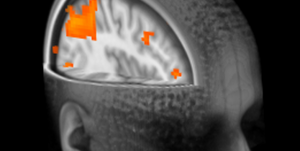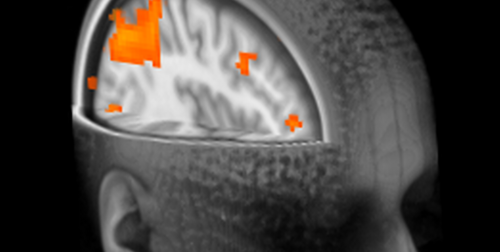Job Summary: Functional Magnetic Resonance in “Resting-state” (fMRI or rsFMRI), or task-free can assess the intrinsic connectivity of functional networks in healthy and / or troubled brains health, which suggests a potential use of this method as a new disease monitoring biomarker. The exam consists of the patient relaxing, fixing his eyes on a cross on the screen and not thinking about anything in particular during a period that varies between 5 to 10 minutes. Numerous research projects have shown that rsFMRI can be used to better understand neuropsychological diseases, including depression, bipolarity, autism, attention deficit, and schizophrenia, in addition to neurological diseases, including epilepsy, multiple sclerosis and Alzheimer's disease. The type of resonance is used extensively to better understand the normal functioning of the human brain.
In some clinical studies, the method has already proved useful to be used in pre-surgical planning. Since the first rsFMRI study was released in 1995 by Bharat Biswal and colleagues, an increasing number of articles using rsFMRI have been published. However, multiple analysis options for rsFMRI are available, including: region-based correlation of interest (in English: seed-based functional correlation - fcMRI), independent component analysis (in English: Independent Component Analysis - ICA) and graph theory. Despite all methods of analysis, results of functional connectivity can be affected by several factors: the patient's cooperation (not moving his head during the examination), image quality, pre-processing techniques and even what the patient is thinking during the exam can change the results. The project aims to assess the robustness of the functional magnetic resonance imaging examination at rest, calculating the reliability and reproducibility of this data depending on the choice of pre-processing steps used and methods of analysis (fcMRI, ICA, graph theory).
Volunteers will be recruited for two functional MRI sessions, in which, in each session, two rsFMRI exams will be performed. The reliability and reproducibility of the analysis methods described above will be calculated. Compared to the functional MRI scan with task, the rsFMRI scan is relatively simple to perform. This is because there is no need for much cooperation from patients and there is no need to train patients to perform the task. This, in many cases, can be difficult in a certain group of patients, such as those with epilepsy or those with attention deficit. However, for the rsFMRI exam to one day become a routine clinical exam, reliability and reproducibility have to be assessed. In the project, volunteers will be recruited to participate in two sections of MRI scans, separated in 3 months. In each section, two rsFMRI exams will be purchased. Thus, rsFMRI reliability calculations can be performed within the same section and also between sections. Volunteers will also perform simple task exams, such as a motor or language exam, so that the reliability of the task exam can also be assessed. The study will only start after approval by the PUCRS ethics committee. The transdisciplinary project will be implemented with professors and students from various colleges and graduate programs at the university, including electrical engineering (emphasis on biomedical engineering), medicine (emphasis on neurosciences), physics (medical physics) and letters (linguistics). The project will be developed and executed at the Brain Institute of Rio Grande do Sul - PUCRS.
Funding entity: Public Call MCTI / CNPq Nº 14/2013 - Universal / Universal 14/2013 - Range A - up to R $ 30,000.00. EE - Electrical and Biomedical Engineering
Check the articles and publications with the research theme:
Impact of analysis methods on the reproducibility and reliability of resting-state networks
Interrater and intermethod reliability of default mode network selection < / a>



